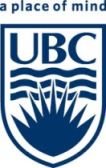Pacific Northwest Geometry Seminar (PNGS)
Speakers
Details
Schedule
Saturday, March 3, 2018 10:30-11:00 Coffee and breakfast snacks 11:00-12:00 Richard Schoen (U.C. Irvine) 12:00-1:30 Lunch 1:30-2:30 Christine Breiner (Fordham University) 2:30-3:00 Coffee break 3:00-4:00 Catherine Searle (Wichita State University) 4:00-4:15 Break 4:15-5:15 Ovidiu Munteanu (University of Connecticut) 6:30 Dinner (location to be announced)
Sunday, March 4, 2018 8:30-9:00 Coffee and breakfast snacks 9:00-10:00 Andre Neves (University of Chicago) 10:00-10:30 Coffee break 10:30-11:30 Regina Rotman (University of Toronto)
All talks will be in Earth Sciences Building (ESB), Room 2012. Region E3 of campus map: http://www.maps.ubc.ca/PROD/images/pdf/ubcmap.pdf
Speaker Abstracts:
Richard Schoen
Ttile: The positive mass theorem revisited
Abstract: We will introduce the positive mass theorem which is a problem originating in general relativity, and which turns out to be connected to important mathematical questions including the study of metrics of constant scalar curvature and the stability of minimal hypersurface singularities. We will then give a general description of our recent work with S. T. Yau on resolving the theorem on high dimensional non-spin manifolds.
Christine Breiner
Title: Compactness theory for harmonic maps into metric spaces
Abstract: We consider harmonic maps from a compact Riemann surface to a metric space with upper curvature bounds in the sense of Alexandrov. For a sequence of harmonic maps with uniform energy bounds, we determine the full ``bubble tree picture" which includes energy quantization and a no-neck property. This result is analogous to Parker's compactness theory in the smooth setting, though the proof is necessarily quite different. This work is joint with Sajjad Lakzian.
Catherine Searle
Title: The maximal symmetry rank conjecture for non-negatively curved manifolds
Abstract: The maximal symmetry rank conjecture states: \noindent{\bf Conjecture} {\it Let $T^k$ act isometrically and effectively on $M^n$, a closed, simply-connected, non-negatively curved Riemannian manifold. Then \begin{enumerate} \item $k\leq \lfloor 2n/3\rfloor$; \item When $k= \lfloor 2n/3\rfloor$, $M^n$ is equivariantly diffeomorphic to $$Z= \prod_{i\leq r} S^{2n_i+1} \times\prod_{i>r} S^{2n_i}, \, \, \, \, {\textrm{ with }} r= 2\lfloor 2n/3\rfloor-n,$$ or the quotient of $Z$ by a free linear action of a torus of rank less than or equal to $2n$ mod $3$. \end{enumerate}} In particular, we have shown that for isotropy-maximal torus actions the conjecture holds. I'll discuss the proof of this result as well as some consequences regarding the classification of manifolds of non-negative curvature with maximal and almost maximal symmetry rank in low dimensions.This is joint work with Christine Escher.
Ovidiu Munteanu
Title: Structure of four dimensional Ricci solitons.
Abstract: I will describe some recent progress made on the asymptotic geometry of four dimensional shrinking Ricci solitons. These are self similar solutions to the Ricci flow, and play an important role in understanding the formation of singularities of the flow. This talk is based on joint work with Jiaping Wang.
Regina Rotman
Title: Lengths of periodic geodesics and related questions. Abstract: Thirty five years ago M. Gromov asked if it is true that the length of a shortest periodic geodesic on a closed Riemannian manifold does not exceed $c(n)Vol^{1/n}$, where Vol denotes the volume of the manifold, and $c(n)$ is a constant that depends only on its dimension $n$. This question and a similar question with the diameter of the manifold instead of $Vol^{1/n}$ are still open.I will discuss the solutions to these and related questions in dimension 2, as well as the upper bounds for periodic geodesics, stationary geodesic nets, loops and minimal surfaces in higher dimensions.
Additional Information
Registration:
There is no cost for attending the seminar, but we do ask all participants to please register here so that we can plan appropriately. Kindly note that the Saturday dinner will be self-hosted. Thank you!
Travel to UBC:
Please see here for more directions.
Travel Reimbursement for participants:
The NSF grant that funds the Pacific Northwest Geometry Seminar provides limited funds to reimburse travel expenses for PNGS participants, including roundtrip transportation, hotel, and meals for the weekend. The funds are available to graduate students or faculty members who do not have NSF grants that include travel funds. First priority goes to graduate students from the participating universities (Lewis & Clark, Oregon State, U. of Oregon, Pacific, Portland State, Seattle U., U. of Washington), and second priority to faculty members from these universities. Participants from other institutions may be supported if funds are available.
If you are interested in travel support, please contact Boris Botvinnik (botvinn@math.uoregon.edu) as early as possible, preferably no later than three weeks before the meeting.
Final scientific report available here.
Christine Breiner (Fordham University)
Ovidiu Munteanu (University of Connecticut)
Andre Neves (University of Chicago)
Regina Rotman (University of Toronto)
Richard Schoen (U.C. Irvine)
Catherine Searle (Wichita State University)



